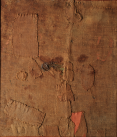Abstract
Birger Munk Olsen's works have pointed out the importance of the commentaries in the reception and canonization of the Latin auctores during the twelfth-century Renaissance. In Bonaventure's famous classification, the commentator, who writes both with his own words and with the words of the others, but gives to the second of these the primary position, is lower in rank than the author. He is also dependent on the commentators who wrote before him. However, the study of mentions or quotations of auctores and former commentators in medieval commentaries shows that the latter used their predecessors only in order to expose their own point of view. A good example of this is furnished by the commentary of the Aeneid commonly attributed to Bernardus Silvestris. This article studies its difference of treatment between its two models, Macrobius and Fulgentius – the first is displayed, the second is more concealed –, and also its use of Ovid, whose Metamorphoses are used as early as in the commentary of Book 1, but who is not explicitly claimed as a model.
Except where otherwise noted, the content of this site is licensed under a Creative Commons Attribution-ShareAlike 4.0 International (CC BY-SA 4.0).
Authors retain copyright of their work. The CC BY-SA 4.0 licence allows readers to copy and redistribute the material in any medium or format, and to remix, transform, and build upon the material for any purpose, even commercially, as long as the original author is credited and as long as any works that are derived from the original are distributed under the same terms.

